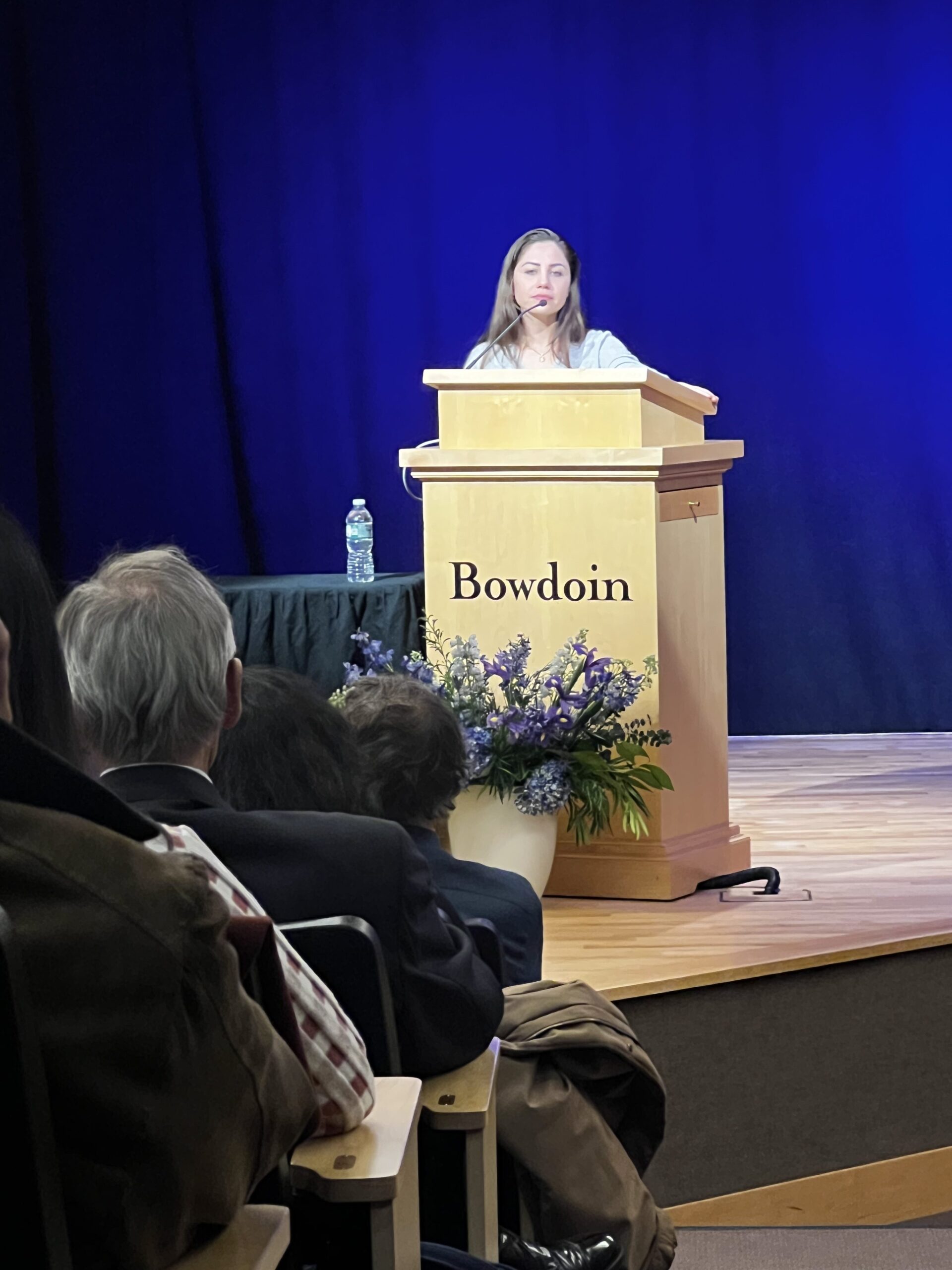Homeira Qaderi Describes Experiences With Taliban
November 18, 2022
 Chinwe Bruns
Chinwe BrunsEditor’s Note November 18, 2022 at 9:30 a.m.: An earlier version of this article was missing parts of the first paragraph. This has been corrected and is not a problem in the print edition.
Author Homeira Qaderi didn’t think she could make it to the Kabul airport in time until she received a call on the final day of U.S. military evacuations of Afghanistan. There was room for her and her eight-year-old son on one of the last departing flights. Qaderi shared this story, along with others, at Wednesday night’s annual Everett P. Pope Lecture.
From her fight for survival amid the Soviet occupation of Afghanistan to her eleventh-hour escape with her eight-year-old son, author Homeira Qaderi divulged the details of her life in Afghanistan and the contents of her book “Tell Me Everything.”
Up until her evacuation, Qaderi had spent her life in Afghanistan under Soviet occupation and Taliban rule and grappled constantly with the decision of whether to stay or leave. However, on the final day of US military evacuation, her father told her she couldn’t be safe in Afghanistan, and she and her son left behind everything they had known and boarded a plane out of Kabul.
“[Leaving] was hard,” Qaderi said. “Everyday we experienced the suicide attack[s] in Afghanistan, but there was a home … in that country. [We fell] in love in that country, we danced in that country, we went [to] a school in that country.”
This tension between safety and the familiarity of home is the subject of “Tell Me Everything” and is an idea that permeates many of Qaderi’s works. Now a writer-in-residence at the Harvard-Radcliffe Institute, Qaderi has received acclaim for her writings about experiences with the Taliban starting in the 1980s, when the Soviet Union occupied Afghanistan.
Central to Qaderi’s experience living in Afghanistan was her oppression by the patriarchy. She shared what it was like when her husband of fourteen years chose to marry another woman, as permitted by laws of polygamy in Afghanistan.
“I loved him at the time. It was hard for me to share him with another woman at the time,” Qaderi said.
She wanted to divorce him but knew that in doing so she would have to surrender custody of her only son to him, as Afghan laws dictate.
“That was a big decision for me: your child or your name,” she said.
She sought out the divorce and did not see her son for four years. Her book “Dancing in the Mosque” is a letter to her son partly about this decision. When she was writing it, she was unsure whether she would see him again.
“I wanted to say … how much I love him,” Qaderi said. “And at the same time, I wanted to say … how much I respect my life.”
She eventually won back custody of him after two years in court. “Dancing in the Mosque” was popular with younger readers, Qaderi said, because she spoke about her emotional experiences as a woman in Afghanistan.
“I [was] saying how much pain I feel in my soul, in my body, that I love my husband, but I stayed for my name,” she said.
Qaderi’s passion for telling the stories of her life and the trauma she has faced began germinating when she was a child. Her first encounter with reading was with Russian literature in her father’s library during the occupation.
“When I started to read [the] literature of Russia, I understood that soldiers of Russia can laugh … they dance with the noise … they drink,” Qaderi said. “I was shocked because I just saw them in my country with dust … and just [running] around [the] alley and after my people and to demonstrate and lift them out.”
Though they unfurled under difficult circumstances, these early reading experiences planted the seeds of her love of writing.
“Story gives me [a] home; politics takes my home,” she said.
Qaderi’s talk was sponsored by the Bowdoin Marine Corps Society (BMCS). BMCS Co-founder Gil Barndollar ’04 said the BMCS started sponsoring the lecture with the intention of bringing speakers to campus that cover international affairs and U.S. national security.
Cofounder of BMCS Jack Abbott ’63 emphasized the importance of hearing Qaderi’s story.
“To me, just reading the press and newspapers and magazines—[it was] enlighten[ing],” Abbott said. “You can’t read this story in other [mediums, besides] maybe her book.”

Comments
Before submitting a comment, please review our comment policy. Some key points from the policy: